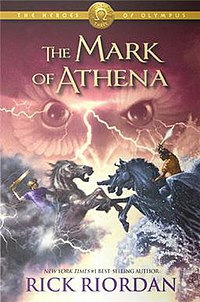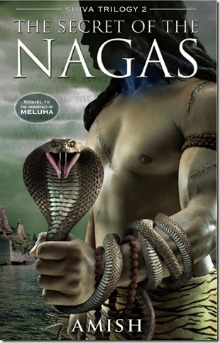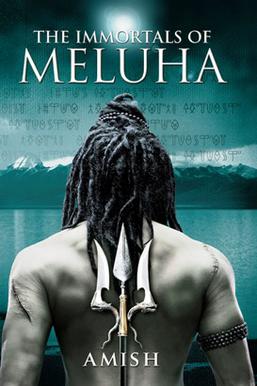"Annabeth is terrified. Just when she’s about to be reunited with Percy—after six months of being apart, thanks to Hera—it looks like Camp Jupiter is preparing for war. As Annabeth and her friends Jason, Piper, and Leo fly in on the Argo II, she can’t blame the Roman demigods for thinking the ship is a Greek weapon. With its steaming bronze dragon masthead, Leo’s fantastical creation doesn't appear friendly. Annabeth hopes that the sight of their praetor Jason on deck will reassure the Romans that the visitors from Camp Half-Blood are coming in peace.
And that’s only one of her worries. In her pocket Annabeth carries a gift from her mother that came with an unnerving demand: Follow the Mark of Athena. Avenge me. Annabeth already feels weighed down by the prophecy that will send seven demigods on a quest to find—and close— the Doors of Death. What more does Athena want from her?Annabeth’s biggest fear, though, is that Percy might have changed. What if he’s now attached to Roman ways? Does he still need his old friends? As the daughter of the goddess of war and wisdom, Annabeth knows she was born to be a leader, but never again does she want to be without Seaweed Brain by her side.
Narrated by four different demigods, The Mark of Athena is an unforgettable journey across land and sea to Rome, where important discoveries, surprising sacrifices, and unspeakable horrors await. Climb aboard the Argo II, if you dare. . .
In The Son of Neptune, Percy, Hazel, and Frank met in Camp Jupiter, the Roman equivalent of Camp Half-blood and traveled to the land beyond the gods to complete a dangerous quest. The third book in the Heroes of Olympus series will unite them with Jason, Piper, and Leo. But they number only six--who will complete the Prophecy of Seven?
"Wisdom's daughter walks alone,The Mark of Athena burns through Rome,Twins snuff out the angel's breath,Who holds the key to endless death.Giants' bane stands gold and pale,Won through pain from a woven jail."
The Greek and Roman demigods will have to cooperate in order to defeat the giants released by the Earth Mother, Gaea. Then they will have to sail together to the ancient land to find the Doors of Death. What exactly are the Doors of Death? Much of the prophesy remains a mystery. . . . With old friends and new friends joining forces, a marvelous ship, fearsome foes, and an exotic setting, The Mark of Athena promises to be another unforgettable adventure by master storyteller Rick Riordan."
Rick Riordan doesn't disappoint with his latest installment in the Heroes of Olympus series. His trademark humor is spot on, causing more than one real-life LOL. All the silly monsters and clever lines that we fell in love with when we read The Lightning Thief are new, improved, and back with a vengeance.
The Mark of Athena sees representatives of the two camps – Half-Blood and Jupiter – together in the same place, but not necessarily united under the same flag. Seven demigods have to venture forth on the quest of a lifetime, but the hardest part might prove to be working together. They must fly on the Argo II, the Greek trireme adorned with the head of our favorite dragon Festus, cross the United States, traverse the ocean, and end up in Rome – one of the most dangerous places in the world for demigods.
The story is told from four different points of view: Piper, Leo, Percy, and Annabeth. Stepping back into Percy’s shoes always feels like soaking in a nice, clean, freshwater river after a particularly arduous day at Camp Half-Blood. Leo is also a personal favorite, and his witty retorts and unique perspectives don’t go unappreciated. Even hopping into Piper’s brain for a while feels familiar and secure. But this truly is Annabeth’s story.
On the whole, the book was another success as far as we’re concerned. The funny moments weigh equally with the emotional bits, and the suspense keeps you turning pages as if the fate of the world is resting on your back. The most exciting part had to be when the demigods finally made it to Rome. Despite the fact that they knew what they had to face there, the crew of the Argo II and the readers alike take a moment to appreciate finally stepping foot in one of the birthplaces of all those legends.
The book slows down periodically to take note of everyone’s situation. There are a lot of characters aboard the ship, and taking stock of what each one is thinking or doing can become tiresome. This book is as much about relationships as it is about finding a way to stop Gaea, and while that’s all fine and dandy, sometimes we just wants to see some ancient mythological monster’s head flying instead of hearing about how everyone feels about everyone else.
Gone are the days of the 12-year-old boy who just found out his father was Poseidon. (Can we just take a moment here as well to say that we really miss those snarky chapter titles from the Percy Jackson and the Olympians series?) Percy is almost 17 and the tone of the book reflects this. The various couples find themselves alone more often and we sense that our favorite characters are almost fully-fledged adults. The humor is sometimes in contrast to this and doesn't fit as well with the story as when our characters were pre-teens. On the other hand, we can’t say we didn't laugh when a giant with an affinity for ballet popped up in a blue tutu and insisted on performing a pirouette with every attack.
The novel on a whole answered a lot of questions, although we probably have just as many new ones for the following book. But these set us up perfectly for the next installment as well: we know the goal (to save the world…again), but it’s an impossible task under an impossible deadline. It’s nothing new for our heroes, but we wouldn't want it any other way.
Oh, and the ending? Well, am obviously not going to give that away. But don’t say I didn't warn you.


.jpg/250px-The_Serpent's_Shadow_(2012).jpg)











